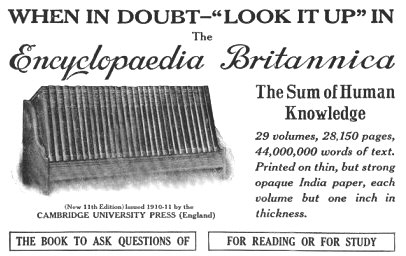|
Travelling The EU
''Travelling the EU'' is a European EP released by Kevin Devine. It was initially released in 2003 through Defiance Records as a limited CD and 7" and later became available through digital retailers. Both physical versions are now out of print. The EP features early versions of "Haircut" and "Probably", which would later be featured on Kevin's third album, Split the Country, Split the Street ''Split the Country, Split the Street'' is Kevin Devine's third studio album. It was released in 2005, being the second of two albums released on Triple Crown Records. It is the first solo record released after Kevin was no longer in Miracle of 86 .... The version of "Probably" featured on this EP was also released on the Beer: The Movie soundtrack. Track listing # "Haircut" # "You Are My Sunshine" # "Probably" References {{DEFAULTSORT:Travelling the EU Kevin Devine EPs 2003 EPs Defiance Records albums ... [...More Info...] [...Related Items...] OR: [Wikipedia] [Google] [Baidu] |
Kevin Devine
Kevin Devine (born December 19, 1979) is an American songwriter and musician from Staten Island, New York City, who is known for his introspective and political themes. He is a contemporary member of the underground indie rock and indie folk musical scenes, and his influences range from older indie artists such as Neutral Milk Hotel, Elliott Smith and Pavement to more mainstream and well known acts such as Nirvana and Bob Dylan. In 2013, Kevin Devine rejoined his previous band, Miracle of 86, for a series of reunion shows. History Beginnings Kevin Devine grew up in Brooklyn and Staten Island and has spent significant time in Manhattan and Queens. Devine graduated from Fordham University at Lincoln Center in 2001, majoring in journalism and writing for the school newspaper, ''The'' ''Fordham Observer''. He first played in the band Delusion, which later changed its name to Miracle of 86 (referring to the 1986 New York Mets). At Fordham he was able to hone his solo, acoustic s ... [...More Info...] [...Related Items...] OR: [Wikipedia] [Google] [Baidu] |
Indie Rock
Indie rock is a Music subgenre, subgenre of rock music that originated in the United States, United Kingdom and New Zealand from the 1970s to the 1980s. Originally used to describe independent record labels, the term became associated with the music they produced and was initially used interchangeably with alternative rock or "Pop rock, guitar pop rock". One of the primary scenes of the movement was Dunedin, where Dunedin sound, a cultural scene based around a convergence of noise pop and jangle became popular among the city's University of Otago, large student population. Independent labels such as Flying Nun Records, Flying Nun began to promote the scene across New Zealand, inspiring key college rock bands in the United States such as Pavement (band), Pavement, Pixies (band), Pixies and R.E.M. Other notable scenes grew in Madchester, Manchester and Hamburger Schule, Hamburg, with many others thriving thereafter. In the 1980s, the use of the term "independent music, indie" (or " ... [...More Info...] [...Related Items...] OR: [Wikipedia] [Google] [Baidu] |
Defiance Records
Defiance Records was a record label based in Cologne, Germany, which was the German and European distributor of several American and international post-hardcore and punk bands. The label was founded in 1994 and closed down in 2013. Artists List of artists that signed with Defiance Records * Alesana * Alexisonfire * Ambrose * As Friends Rust * The Cable Car Theory * Clarity Process * The Coalfield * The Copperpot Journals * The Data Break * Delorean * Down In Frustration * Engrave * Face the Enemy * Gameface * Hot Water Music * Haste * Hopeful * It's Not Not * Joshua * Jude the Obscure * Kevin Devine * Limbeck * Miracle of 86 * The National Anthems * Never Surrender * New End Original * One Man and His Droid * Pale * Portugal. The Man * Piebald * Reno Kid * River City High * Solea * Standstill * The Stereo * Three Minute Poetry * Wedekind Discography *1999: Pale ''Another Smart Move (with Soda Records)'' *2001: Pale ''Razzmatazz (The Arts at the Sands)'' *2002: ... [...More Info...] [...Related Items...] OR: [Wikipedia] [Google] [Baidu] |
Circle Gets The Square
''Circle Gets the Square'' is Kevin Devine's first studio album as a solo artist. It was released in 2002 through Immigrant Sun Records. The songs featured on the album dramatically contrast with those of Miracle of 86, a band in which Kevin was the lead singer and guitarist. Kevin believed that the style and themes of his songs did not represent the band's music well. The song "Protest Singer" was inspired by a lyric in The Smiths' "Shakespeare's Sister": ''I thought that if you had an acoustic guitar then it meant that you were a protest singer''. Kevin recalled the influence of that lyric on his own work in an interview with Kevin Schachter of youasthedriver.com, to whom he remarked, "...I just used the lyric for a flyer for one of my first solo shows. Then when I thought about it, I realized it was true. Before Dashboard Confessional Dashboard Confessional is an American rock band from Boca Raton, Florida, led by singer Chris Carrabba. The name of the band is derived from ... [...More Info...] [...Related Items...] OR: [Wikipedia] [Google] [Baidu] |
Make The Clocks Move
''Make the Clocks Move'' is Kevin Devine's second studio album. It was released in 2003, making it the first of two albums released on Triple Crown Records. The German record label, Defiance Records, released a double LP set which bundled the album with Kevin's following album, ''Split the Country, Split the Street''. After it had been out of print for a period of time, the album was re-issued by Triple Crown Records on October 12, 2010. The re-issue features new artwork, Kevin's own extensive liner notes and an introductory note by Brand New vocalist Jesse Lacey. The re-issue was also released on vinyl and features two previously unreleased demo tracks from the album's sessions: "''Funerals and Carnivals''" and "''You Knock Me Out''". It is the first of his albums produced by Chris Bracco and Mike Skinner, both of whom would later produce a number of Kevin's recordings, including the albums ''Split the Country, Split the Street ''Split the Country, Split the Street'' is Kevi ... [...More Info...] [...Related Items...] OR: [Wikipedia] [Google] [Baidu] |
Out Of Print
__NOTOC__ An out-of-print (OOP) or out-of-commerce item or work is something that is no longer being published. The term applies to all types of printed matter, visual media, sound recordings, and video recordings. An out-of-print book is a book that is no longer being published. The term can apply to specific editions of more popular works, which may then go in and out of print repeatedly, or to the sole printed edition of a work, which is not picked up again by any future publishers for reprint. Most works that have ever been published are out of print at any given time, while certain highly popular books, such as the Bible, are always "in print". Less popular out-of-print books are often rare and may be difficult to acquire unless scanned or electronic copies of the books are available. With the advent of book scanning, and print-on-demand technology, fewer and fewer works are now considered truly out of print. A publisher creates a print run of a fixed number of copies of ... [...More Info...] [...Related Items...] OR: [Wikipedia] [Google] [Baidu] |
Split The Country, Split The Street
''Split the Country, Split the Street'' is Kevin Devine's third studio album. It was released in 2005, being the second of two albums released on Triple Crown Records. It is the first solo record released after Kevin was no longer in Miracle of 86 (a band in which he was the lead singer). The album features more rock oriented songs with fuller band arrangements than his previous two releases, and was produced by Chris Bracco, Mike Skinner & Kevin Devine. Kevin said of the album: ''"Split the Country was done after the band iracle of 86broke up, like the hangover from that. It was more bi-polar: aggressive rock songs with fuller instrumentation, but also songs with violins and glockenspiel or just a guy with a guitar."'' Despite the break, the album features former Miracle of 86 member Mike Robertson on guitar for three songs. Early versions of "Haircut" and "Probably" feature on the Travelling the EU EP. The German record label, Defiance Records Defiance Records was a record ... [...More Info...] [...Related Items...] OR: [Wikipedia] [Google] [Baidu] |
Kevin Devine EPs
Kevin () is the anglicized form of the Irish masculine given name (; mga, Caoimhghín ; sga, Cóemgein ; Latinized as ). It is composed of "dear; noble"; Old Irish and ("birth"; Old Irish ). The variant ''Kevan'' is anglicized from , an Irish diminutive form.''A Dictionary of First Names''. Oxford University Press (2007) s.v. "Kevin". The feminine version of the name is (anglicised as ''Keeva'' or ''Kweeva''). History Saint Kevin (d. 618) founded Glendalough abbey in the Kingdom of Leinster in 6th-century Ireland. Canonized in 1903, he is one of the patron saints of the Archdiocese of Dublin. Caomhán of Inisheer, the patron saint of Inisheer, Aran Islands, is properly anglicized ''Cavan'' or ''Kevan'', but often also referred to as "Kevin". The name was rarely given before the 20th century. In Ireland an early bearer of the anglicised name was Kevin Izod O'Doherty (1823–1905) a Young Irelander and politician; it gained popularity from the Gaelic revival of the l ... [...More Info...] [...Related Items...] OR: [Wikipedia] [Google] [Baidu] |
2003 EPs
3 (three) is a number, numeral and digit. It is the natural number following 2 and preceding 4, and is the smallest odd prime number and the only prime preceding a square number. It has religious or cultural significance in many societies. Evolution of the Arabic digit The use of three lines to denote the number 3 occurred in many writing systems, including some (like Roman and Chinese numerals) that are still in use. That was also the original representation of 3 in the Brahmic (Indian) numerical notation, its earliest forms aligned vertically. However, during the Gupta Empire the sign was modified by the addition of a curve on each line. The Nāgarī script rotated the lines clockwise, so they appeared horizontally, and ended each line with a short downward stroke on the right. In cursive script, the three strokes were eventually connected to form a glyph resembling a with an additional stroke at the bottom: ३. The Indian digits spread to the Caliphate in the 9th ... [...More Info...] [...Related Items...] OR: [Wikipedia] [Google] [Baidu] |

